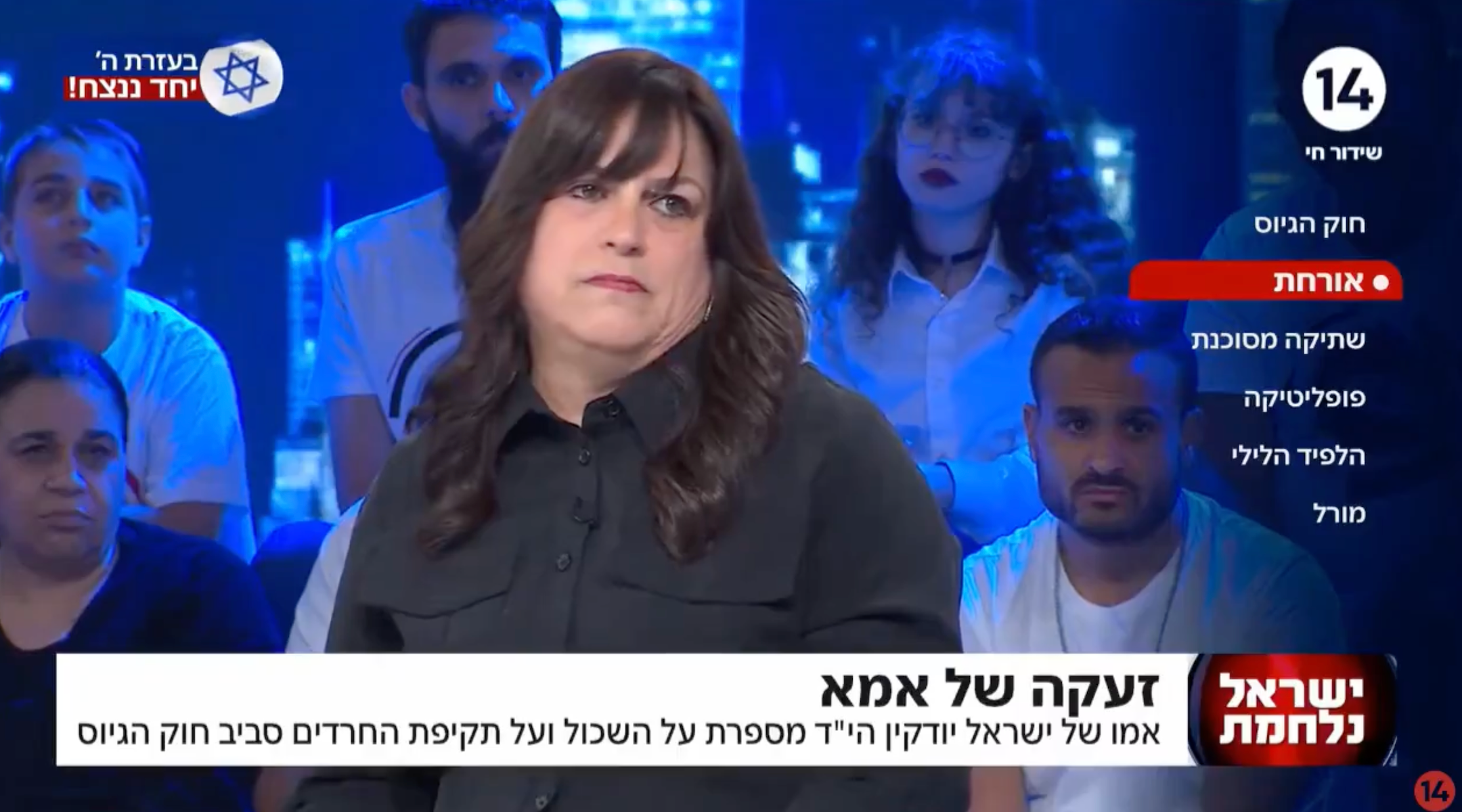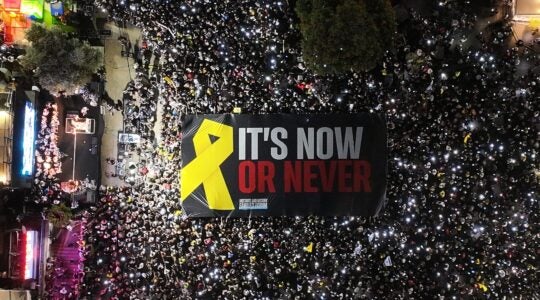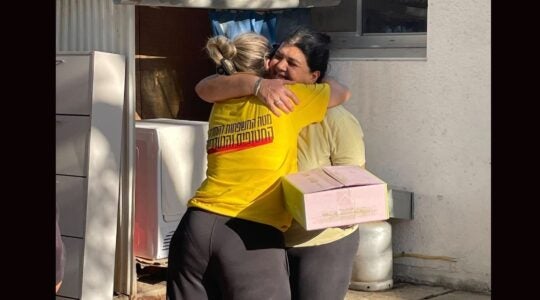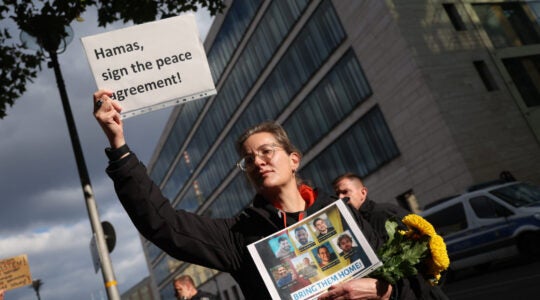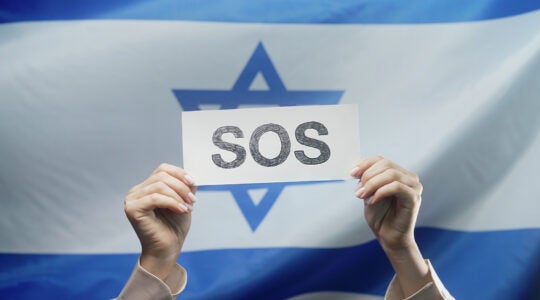In June, the family of Capt. Yisrael Yudkin gathered at a cemetery for a mournful ritual: the unveiling of the headstone of their son and brother, Yisrael Yudkin, an Israeli soldier killed on May 22 while fighting in northern Gaza.
But unlike many of the hundreds of other Israeli families who have buried their sons this year, the Yudkin family used the ritual to register a protest: They left Yisrael’s headstone blank, pending the resolution of a dispute between the family and Israel’s Ministry of Defense.
The family, members of the Chabad Hasidic movement, had requested that the inscription on Yisrael’s gravestone include the three-letter abbreviation for the phrase “May God avenge his blood.” The expression, in Jewish tradition, has historically been appended to the names of Jews killed for being Jewish. Since the founding of Israel, it has also been used in reference to victims of war and terrorism — but has not been allowed on military gravestones.
“This is not just our pain but the pain of many,” the family wrote to Defense Minister Yoav Gallant. “The issue [has] remained unresolved, showing insensitivity towards bereaved families and the sanctity of the fallen.”
On Tuesday, after attracting support from senior Israeli lawmakers and public figures, Gallant’s ministry approved the change. If families wish, the gravestones of soldiers may now include the abbreviation, as well as the two-letter abbreviation for the overarching epitaph “of blessed memory.”
“It is one less burden in our grief for our son,” said Yisrael’s mother, Tzipi Yudkin. “This is not a haredi custom, it’s one that has been an idea in Judaism for thousands of years. It can’t be that in the state of Israel, we’re not allowed to include this on a grave.”
She added, “It doesn’t matter if they were left, right, religious, or not, they were killed because they’re Jews.”
Yudkin noted that the phrase could have another meaning: while the middle word, “yikom,” is the Hebrew word for “avenge,” the particulars of Hebrew grammar mean that it can also reference the term “to rise up” — an allusion to the Jewish belief in the resurrection of the dead in messianic times.
“We’re asking God to resurrect his blood, so to speak. So that he can continue to be,” she said. “And only God can do this, so we’re asking Him.”
The campaign’s supporters spanned Israel’s Jewish spectrum. One of the most outspoken was lawmaker Yulia Malinovsky of the secularist right-wing Israel Beiteinu, who framed her advocacy in terms of the raging national Israeli debate over whether and how Israel should draft haredi Orthodox soldiers like Yudkin.
Malinovsky’s party is one of the fiercest proponents of drafting haredi men, who have historically been exempt from mandatory conscription. She pushed for the change to inscription guidelines, she said, because in order to draft haredi soldiers Israel needs to respect their customs, including at burial.
“We need the haredi sector with us in the army, and we must make accommodations for them both in life and, unfortunately, in death,” she posted to Facebook. “What started as the justified struggle of the Yudkin family has led to a new reality.”
In her own posts memorializing other fallen soldiers, Malinovsky writes the abbreviation for “May God avenge his blood.” Prime Minister Benjamin Netanyahu, who is himself secular but leads a coalition with religious parties, has also used the phrase or variations on it in official statements.
Since Hamas launched the current war with its Oct. 7 attack on Israel, some Israelis have called for revenge. But Nehemia Rosenfeld, a spokesperson for Kfar Chabad, the village outside of Tel Aviv where the Yudkin family lives, said that the abbreviation asking for God to avenge fallen soldiers’ blood should actually discourage people’s vengeful instincts.
“People think it’s a call to take revenge, when in fact it’s the total opposite,” he said. “By saying [the abbreviation], we’re saying it’s not up to us, we’re leaving it up to God. It’s actually the most humane thing to say.”
Four of the Yudkin family’s eight children have served in the military, and Tzipi Yudkin described her late son as a father figure to his soldiers in the haredi Netzach Yehuda battalion. On breaks from the army, Yudkin would visit soldiers who lacked basic resources or family support, and would fill their fridges with groceries, his mother said.
“He was firm, but also showed them so much compassion. He demanded 100% but also gave them more than 100%. It’s not one or two soldiers, or even 10. It’s much more. Even now, soldiers keep coming to me to tell me they’re broken. They feel like they lost a father,” she said.
For Yudkin and others in her community, the new policy represents a significant concession, particularly in the context of the ongoing debate over haredi enlistment.
“The army is finally waking up to the realization that it needs to be more Jewish,” she said.
Some Israelis have aired misgivings about the change — “There’s a format for IDF burial, and civilian burial is an option” where the family can choose what to inscribe on the gravestone, wrote one Israeli journalist.
But in the wake of the decision, several more bereaved families of fallen soldiers have requested that the abbreviation be added to the gravestones of their loved ones, according to Shilo Freid, a reporter for the Israeli publication Ynet.
Yudkin said she has also received dozens of messages from others hoping to add the abbreviation to gravestones. She has no regrets about engaging in such an emotionally draining and time-consuming battle immediately after her son’s passing.
“It was necessary; we couldn’t rest until this was done. The grief will never end,” she said. “My heart is divided among my eight children, and that hasn’t changed with Yisrael’s passing. But now that this is over, I want to return to grieving, and eventually find my way back to the routine and the joy for life I once had.”
JTA has documented Jewish history in real-time for over a century. Keep our journalism strong by joining us in supporting independent, award-winning reporting.
